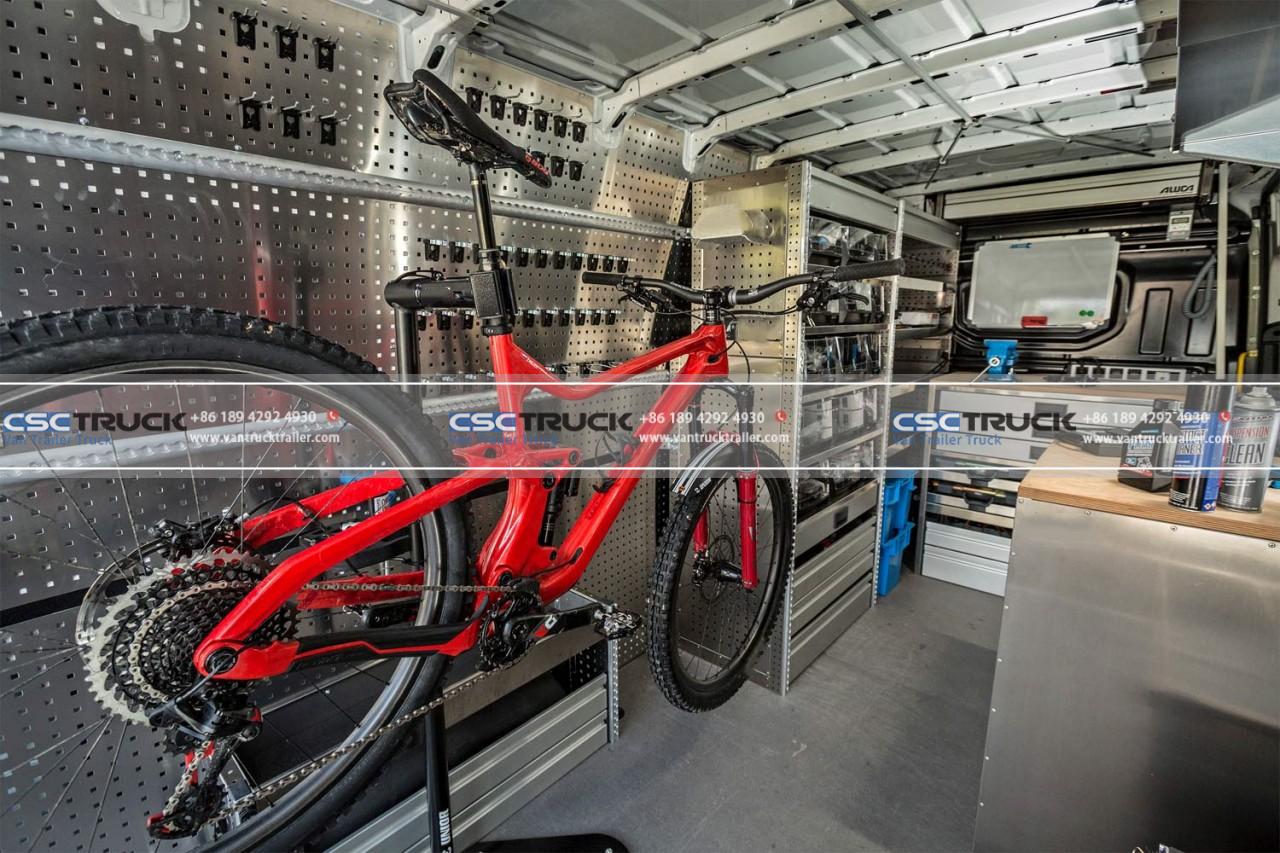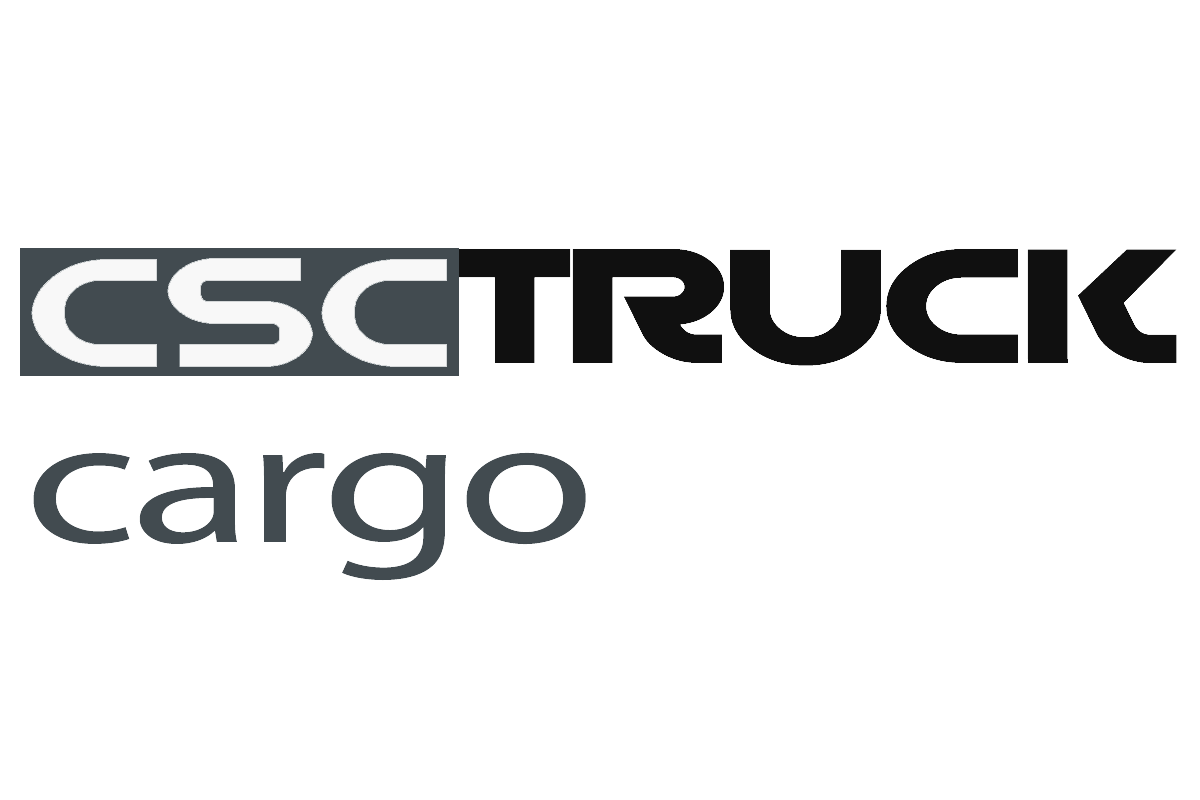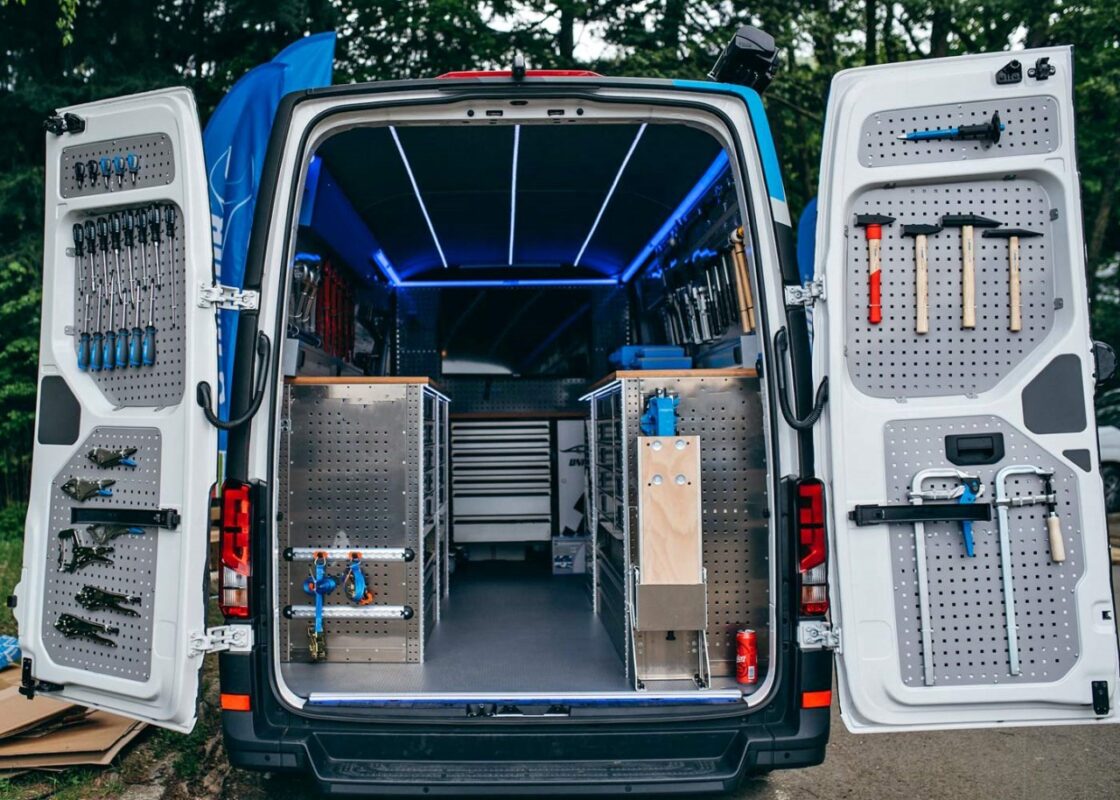In today’s fast-paced world, mobility and flexibility are key factors in various industries. This is particularly true for individuals and businesses that require a mobile workshop setup. Whether you’re a contractor, a technician, or an artist on the go, having the right tools and equipment at your fingertips is essential for productivity and efficiency. In this article, we will explore the essential tools and equipment needed for a mobile workshop setup.
1. Portable Workbench: A sturdy and compact workbench is the foundation of any mobile workshop setup. Look for a foldable workbench that is lightweight and easy to transport. It should have a solid surface to work on and provide stability for various tasks.
2. Hand Tools: A comprehensive set of hand tools is crucial for any mobile workshop. Some essential hand tools include screwdrivers, pliers, wrenches, hammers, utility knives, and measuring tapes. Opt for high-quality tools that are durable and reliable.
3. Power Tools: Power tools greatly enhance productivity in a mobile workshop setup. Invest in versatile power tools such as a cordless drill, circular saw, jigsaw, and oscillating multi-tool. These tools will help you tackle a wide range of tasks efficiently.
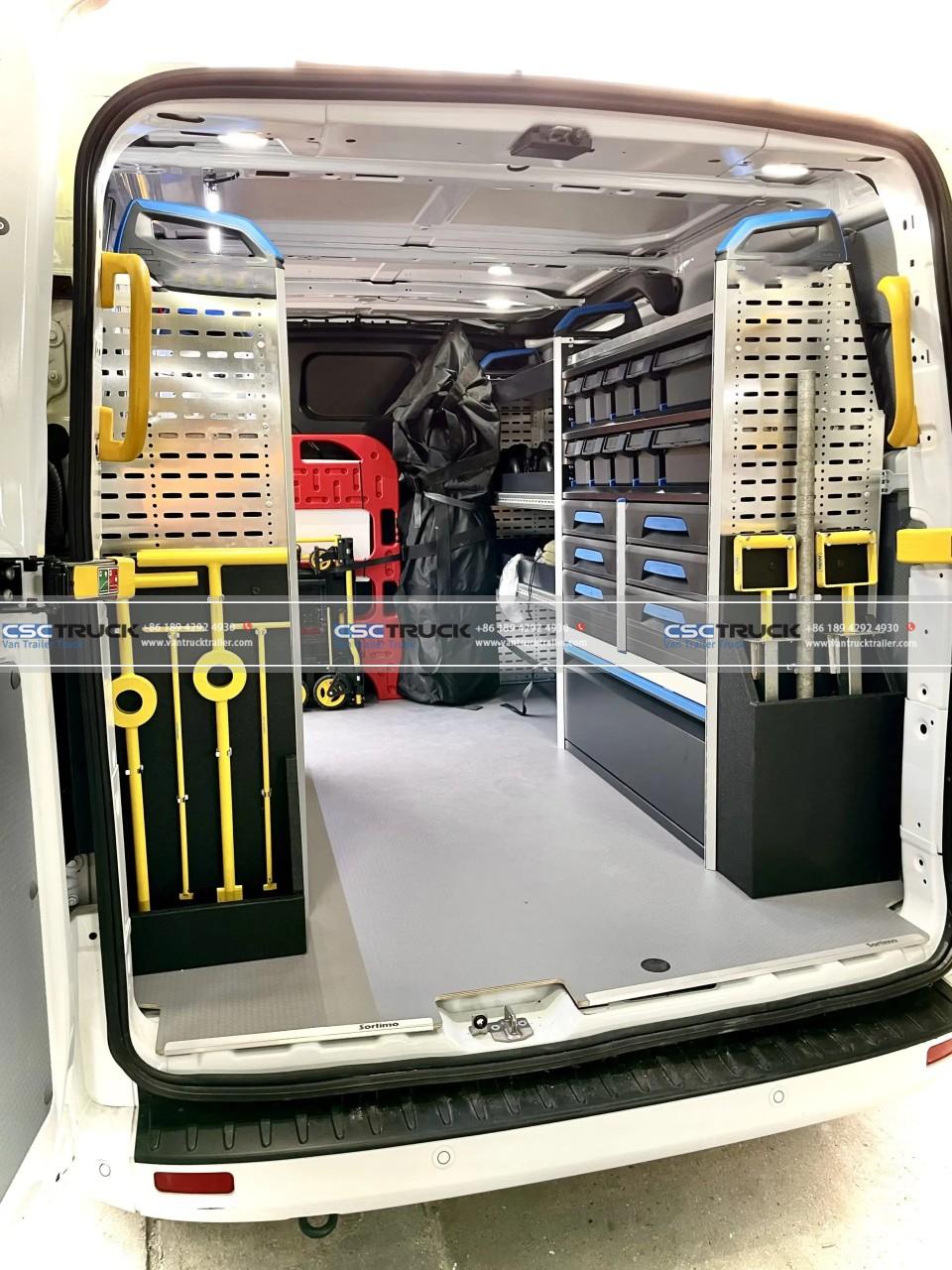
4. Portable Power Source: Since you’re working on the go, having a reliable power source is essential. Consider investing in a portable generator or a power bank with multiple outlets. These will ensure that your power tools and other electronic devices have enough power to operate throughout the day.
5. Lighting: Adequate lighting is crucial for any workspace, and a mobile workshop is no exception. Choose portable LED work lights that are bright, energy-efficient, and have a long battery life. These lights can be easily mounted or placed in strategic locations to illuminate your work area.
6. Storage Solutions: In a mobile workshop setup, the organization is key. Invest in durable toolboxes, storage bins, and shelving units to keep your tools and equipment organized and easily accessible. Look for stackable and collapsible options to optimize space in your mobile workshop.
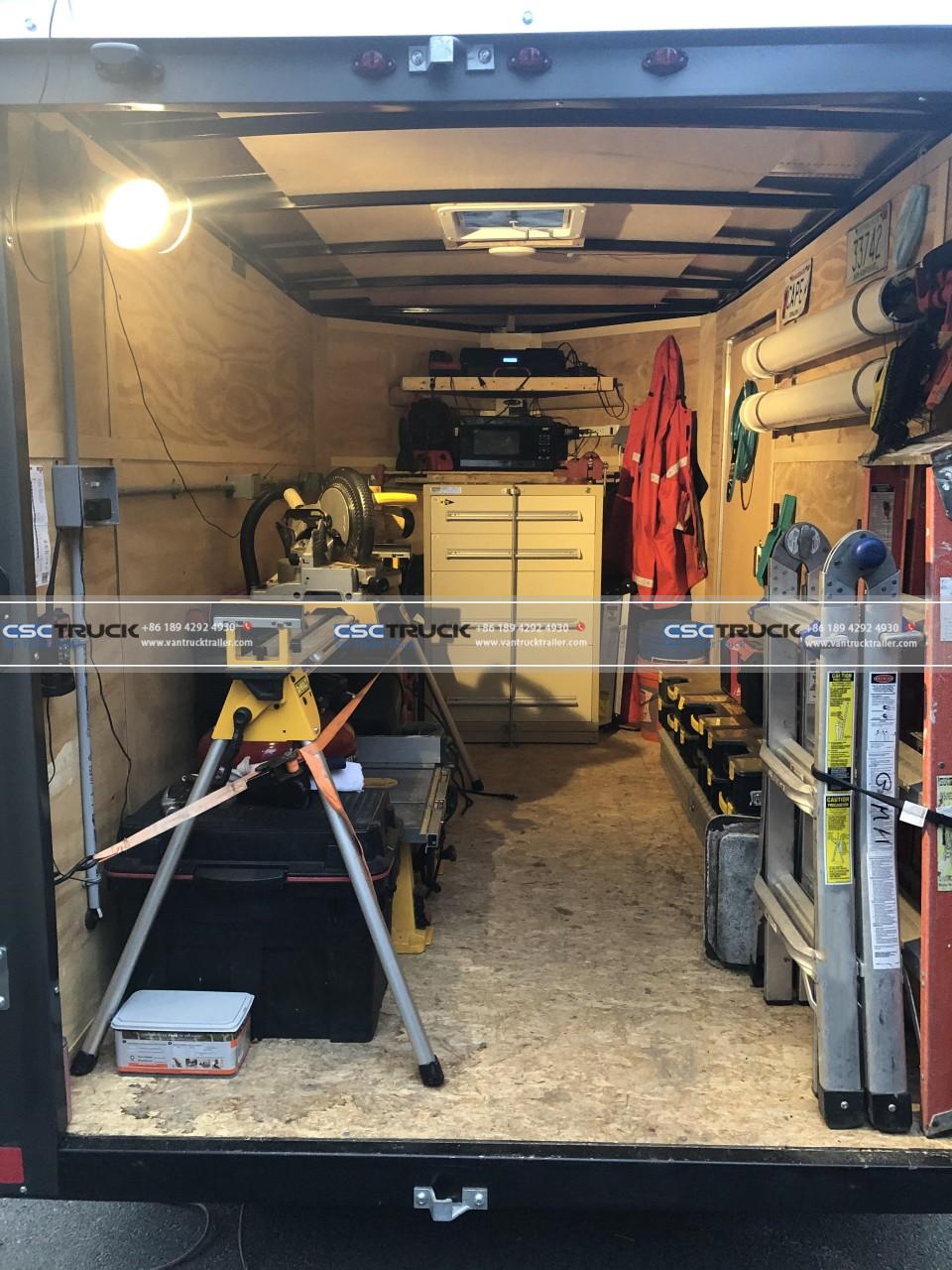
7. Safety Equipment: Safety should never be compromised, regardless of where you’re working. Stock up on personal protective equipment (PPE) such as safety goggles, ear protection, gloves, and dust masks. Additionally, keep a first aid kit handy for any minor injuries that may occur.
8. Mobile Workstation: Depending on the nature of your work, you may require a dedicated workstation for specific tasks. This could include a portable welding station, a cutting table, or a painting booth. Invest in equipment that is easy to set up and dismantle, allowing you to adapt to different work requirements.
9. Mobile Tool Storage: To ensure that your tools and equipment are protected during transportation, invest in mobile tool storage solutions. Look for durable tool chests or rolling tool cabinets that provide secure storage and easy mobility. Some options even come with built-in power outlets for charging your tools.
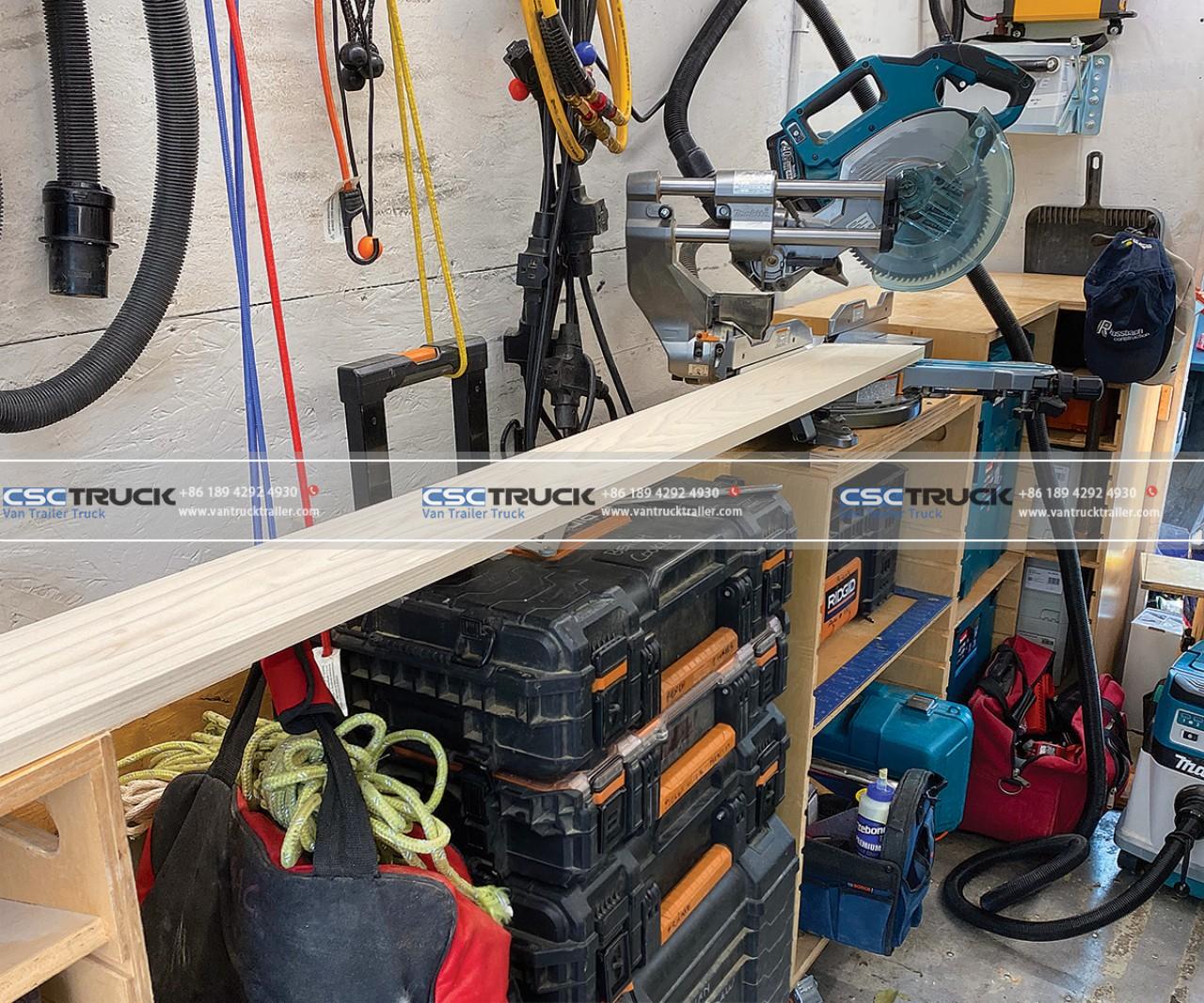
10. Consumables and Supplies: Don’t forget to stock up on essential consumables and supplies. This includes items such as screws, nails, adhesives, sandpaper, lubricants, and paint. Having an inventory of these supplies will save you time and effort when you’re on the move.
11. Communication Tools: In a mobile workshop setup, effective communication is crucial. Invest in a reliable mobile phone or two-way radio to stay in touch with clients, colleagues, and suppliers. Additionally, consider a portable Wi-Fi hotspot to ensure internet connectivity wherever your work takes you.
12. Documentation Tools: Keeping track of your work, orders, and expenses is essential for any mobile workshop setup. Consider investing in a portable scanner or a smartphone with scanning capabilities. This will allow you to easily digitize and organize documents while on the go.
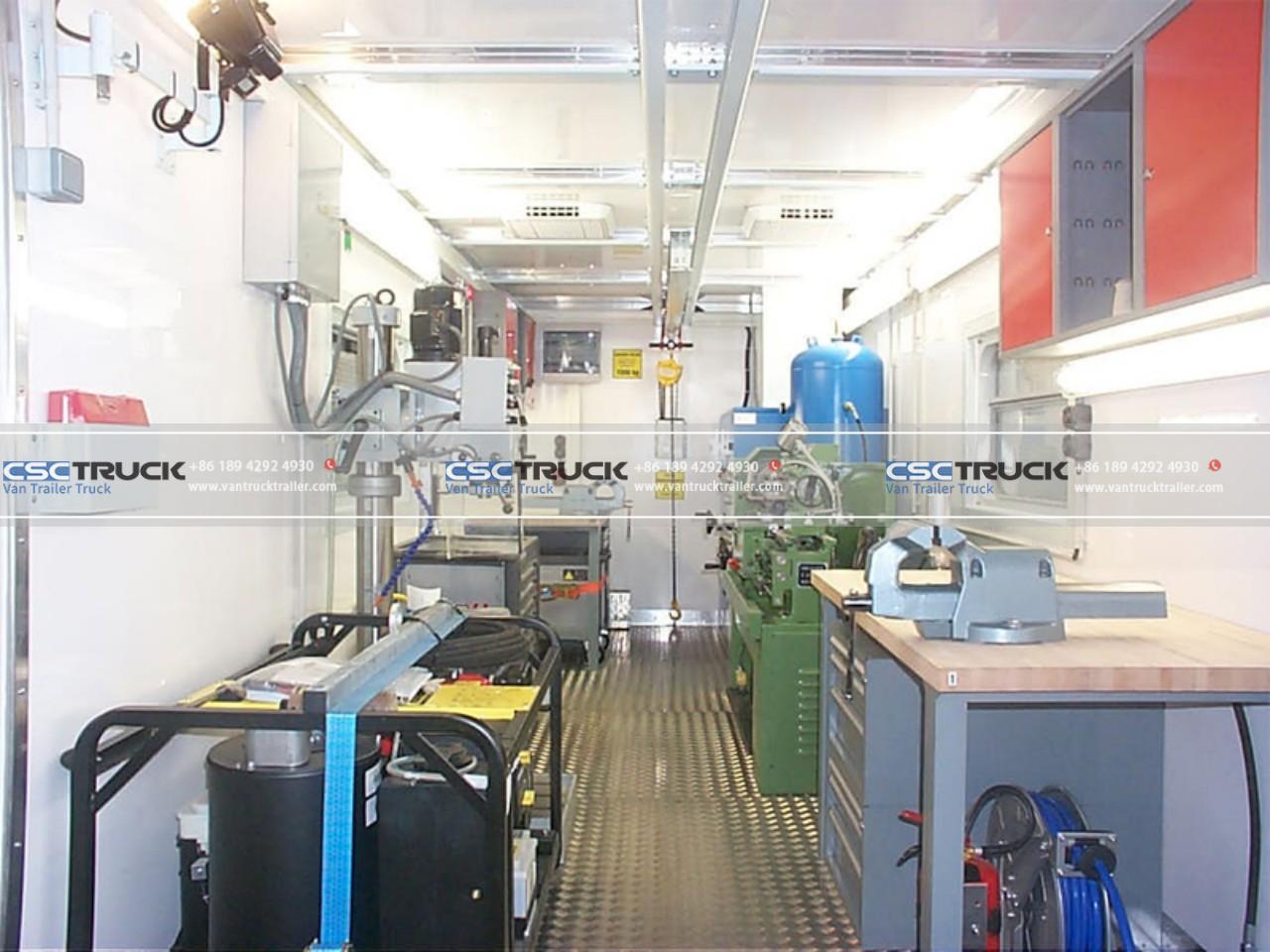
In addition to the essential tools and equipment mentioned above, there are a few more aspects to consider for a well-rounded mobile workshop setup:
13. Vehicle Considerations: Your choice of vehicle plays a significant role in the functionality of your mobile workshop. Select a vehicle that suits your needs in terms of storage space, towing capacity (if necessary), and fuel efficiency. Customizing your vehicle with racks and storage compartments can also optimize the transportation of tools and equipment.
14. Weather Protection: Working outdoors exposes your tools and equipment to the elements. To protect them from rain, dust, and extreme temperatures, invest in weather-resistant covers and cases. Consider using waterproof containers to store sensitive equipment and materials.
15. Ergonomic Seating: Since you might be spending a significant amount of time working on your projects, a comfortable and ergonomic seating solution is essential. Invest in a supportive and adjustable chair to reduce fatigue and prevent strain on your back and neck.
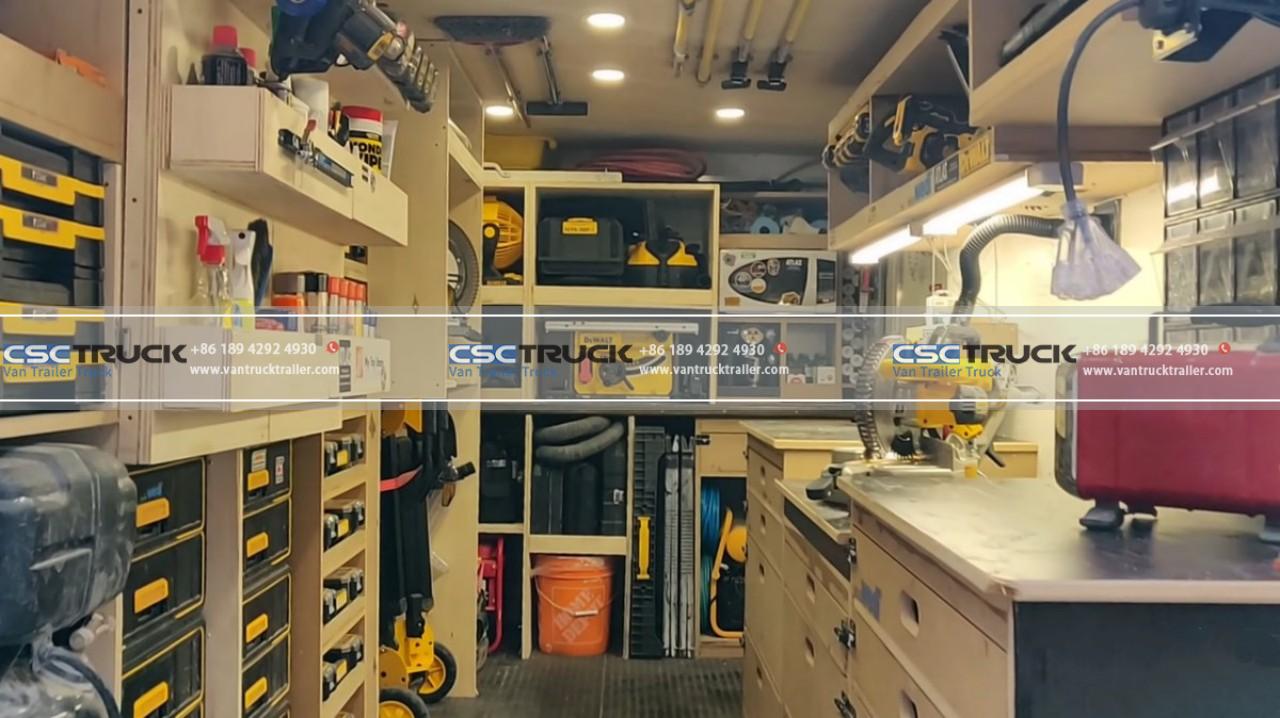
16. Multi-Functional Equipment: Space and weight limitations in a mobile workshop call for versatile and multi-functional equipment. For instance, consider a combination ladder that serves as a step ladder, extension ladder, and even a scaffold. Compact, multi-functional tools and equipment can save space while still offering utility.
17. Mobile Payment Solutions: In today’s digital world, having the capability to accept mobile payments can be a significant advantage. Invest in a mobile payment system or a card reader that allows you to accept credit card payments on the spot. This not only streamlines transactions but also makes it easier for clients to work with you.
18. Environmental Considerations: If your work involves any potentially hazardous materials, be mindful of proper waste disposal and environmental regulations. Have the necessary containers or bags to store and dispose of waste responsibly.
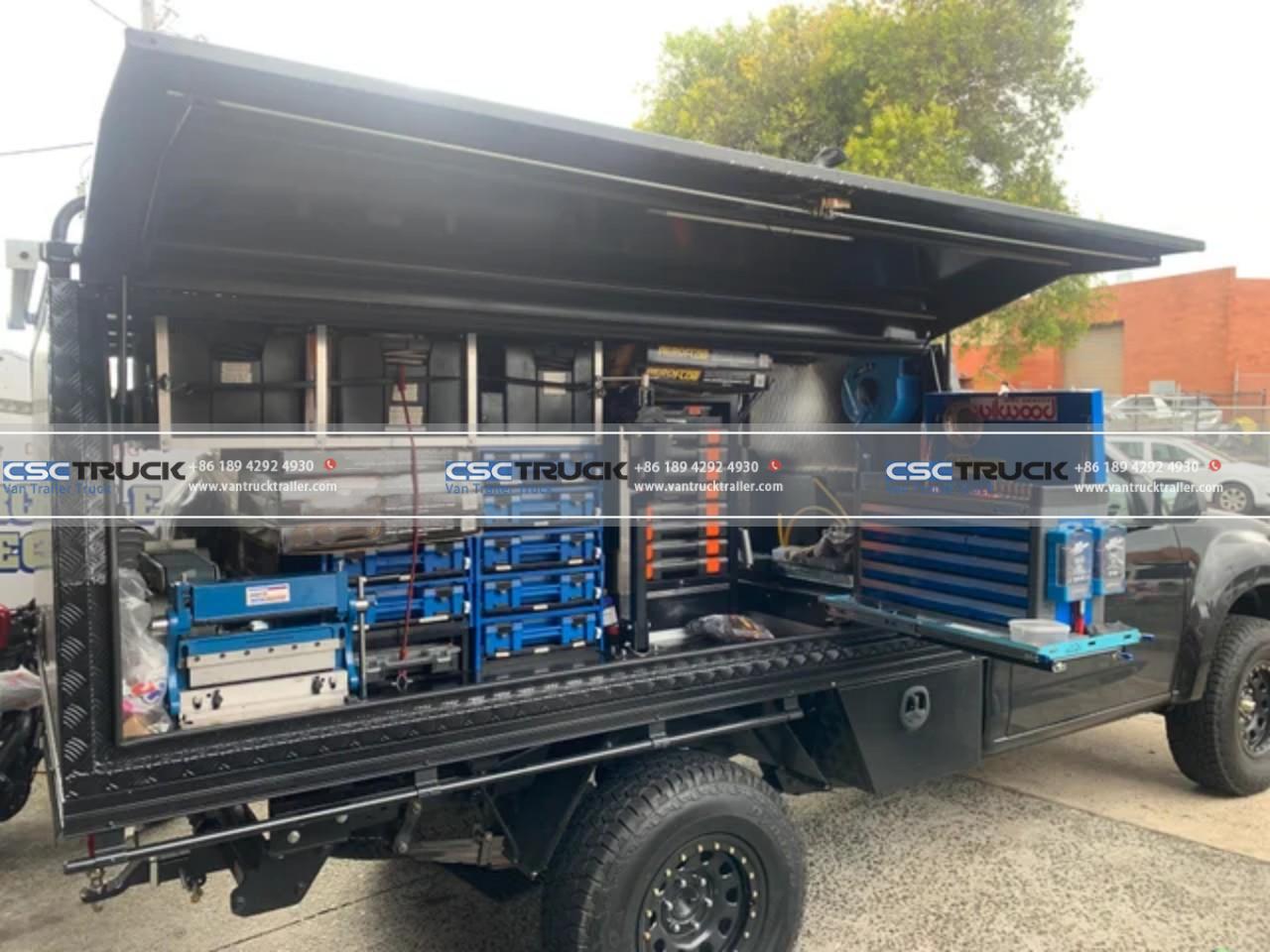
19. Personalization: Customize your mobile workshop set up to reflect your brand and make it stand out. Utilize vehicle wraps or decals to display your company logo and contact information, which can serve as a great marketing tool while you’re on the move.
20. Maintenance and Regular Checks: A mobile workshop setup requires regular maintenance to ensure its optimal functionality. Check your tools, equipment, and vehicle regularly for any signs of wear or damage. Proper maintenance can prevent unexpected breakdowns and keep your setup running smoothly.
In conclusion, a well-equipped mobile workshop setup can empower you to work efficiently and effectively while on the go. Investing in high-quality tools and equipment, considering the logistics of transportation and storage, and prioritizing safety and organization is vital for a successful mobile workshop. By creating a workspace that meets your specific needs and challenges, you can take your expertise to various locations, expand your business opportunities, and provide your clients with exceptional services – all from the convenience of your mobile workshop.
